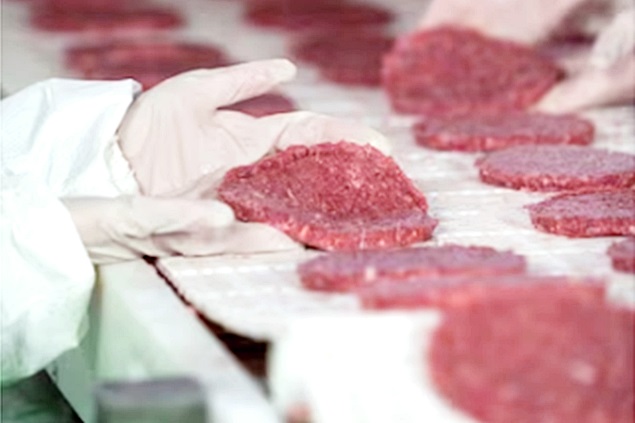
The cultivated meat market in Germany and Europe is considered promising. IFFA will focus on this major future topic starting from 2025, and for this reason, they spoke with Ivo Rzegotta from the Good Food Institute Europe about the state of affairs regarding alternatives to conventionally farmed meat. Both promising start-ups and established companies in Germany are already playing an important role in the field of cellular cultivation.
A future-oriented topic
New plant-based products, innovative fermentation processes, and the future-oriented subject of cultured meat are revolutionizing our entire food system and will be one of the main discussion topics at IFFA. The organizers of IFFA-Frankfurt had a conversation with Ivo Rzegotta, Senior Communications Manager Germany at the Good Food Institute Europe, about the challenges and opportunities in this transformative process.
-Mr. Rzegotta, the alternative protein market is growing, and more people are looking to eat more sustainably and consume less conventional meat. The spectrum of alternative protein products ranges from completely plant-based meat substitutes to hybrid products and cultivated meat. Can you provide an overview of how these individual segments are currently developing in Germany?
-"Globally, at least 1,150 companies are producing plant-based alternatives to animal-based products, including both innovative start-ups and established companies in the food industry. At least 70 of them are based in Germany. Additionally, there are numerous B2B companies driving advancements in this field.
Germany is by far the largest market for plant-based alternative products in Europe. In terms of sales, the German plant-based food market grew by 11% to 1.9 billion EUR in 2022 and increased by a total of 42% since 2020.
Given the increasing quality of products, we expect dynamic growth to continue, especially as we observe numerous innovations in categories that have lagged behind until now, such as plant-based fish products and structured products like plant-based steaks.
Currently, the alternative protein market is almost entirely composed of plant-based products, and it will take some time before cultivated meat and fermentation-based products enter the German market. Consequently, hybrid products made from both animal and plant proteins occupy only a niche in the market.
However, representative surveys of the population indicate that consumers are highly receptive to cultivated and fermentation-based products, making Germany a very promising market for such sustainable options."
-Cultivated meat is not yet approved as food in Europe. When do you think cultivated meat will become available for sale, and what are the current obstacles in this regard? What is the situation in Germany?
-"In recent months, significant progress has been made towards the market launch of cultivated meat. The first products have been approved in the USA, and similar procedures are underway in other markets.
When such products will reach the German and European markets primarily depends on two things: First, production costs need to be further reduced, and the necessary production capacities built before the products are ready for the mass market.
This requires not only private investment but also significantly greater public funding for research and infrastructure. Although Germany has invested heavily in energy and transportation revolutions, a comparable effort towards a food revolution is still awaited.
Second, cultivated meat is regulated by the EU Novel Food Regulation, which requires a thorough food safety review before such products can be sold in the EU. However, this process is highly bureaucratic and takes much longer than in other parts of the world. Therefore, the German government should do more to assist companies with personalized consulting services.
Germany can boast several very promising start-ups in the cellular cultivation field. However, as a major industrial location, Germany is primarily a pioneer in upstream areas, for example, in the development of sustainable culture media and the production of fermenters for cultivation and fermentation.
Moreover, German companies like Merck, The Cultivated B, and GEA have positioned themselves as the backbone of this new industrial sector, extending far beyond the country's borders."





